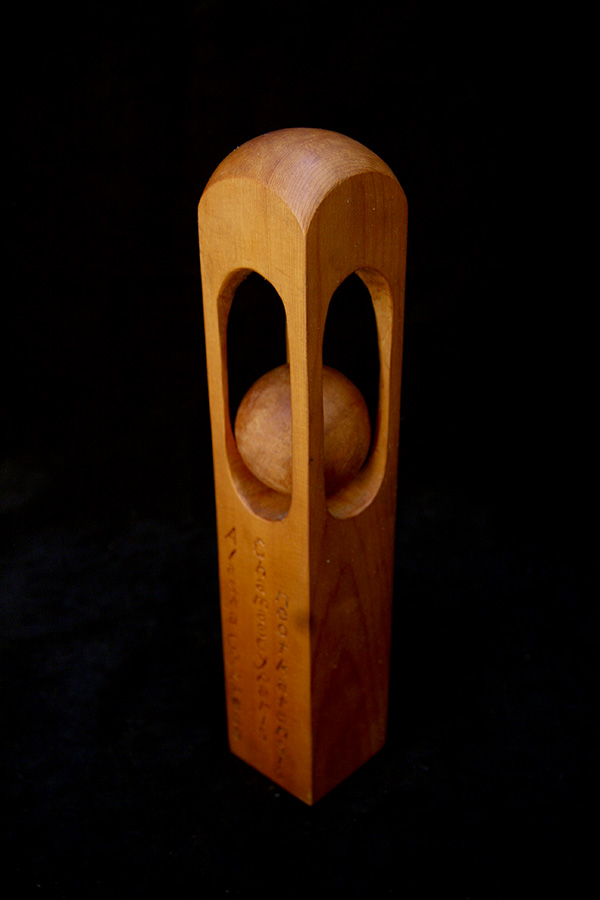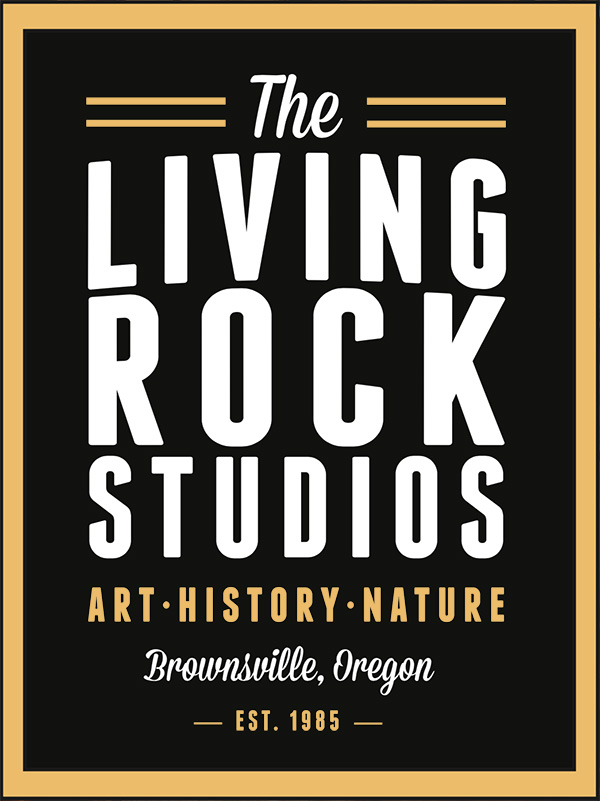This carving was developed using wood from an Alaska Cyprus and a pocketknife.
Notice the perfectly curved edges and the round ball in the center. Howard B. Taylor took great care and time to make sure that this carving would not only show off the beauty of the natural wood grain but also could move. The center ball is completely spherical and moves within the confines of the carving itself. It is similar to a child’s toy rattle that would make noise when shaken.

Scientific Name
Chamaecyealis nootkatensis
kam-ah-SIP-ar-iss newt-kah-TEN-sis
Height
Ranges from 50 to 100 feet tall
A one-story house averages 10 feet tall. It would take 5-10 houses stacked on top of one another to reach the height of an Alaska Cyprus.
Width
Ranges from 1 to 4 feet in diameter
The width of a large refrigerator/freezer is only 3 feet
Uses
It is used for furniture, interior finish, and boats
In the past, it was used by the northwest coast Indians to make canoes and masks
This tree is also called Alaska cedar, Alaska yellow cedar, or Nootka Cyprus. Its technical name is Chamaecyealis nootkatensis.
The tree has a narrow crown and horizontal or slightly drooping branches. It ranges from 50 to 100 feet tall, 1 to 4 feet in diameter. The leaves are evergreen, opposite in 4 rows, 1/8 inch long, scale-like, pointed and spreading, and a bright yellow-green color. The bark is fibrous and shredded looking, with and a gray-brown color and thin with long, narrow fissures. The branches spreading horizontally become a reddish-brown. The cones are 1/4 inch in diameter, rounded, reddish-brown, with 4-6 rounded cone scales ending in a long point.
Location
Their habitat is mainly in mixed conifer forests in wet, mountain soils although they are sometimes in pure sand. They range from the Pacific Coast Region from Alaska southwest to the mountains of western Oregon and extreme northwest California.
Other Uses
The wood is very durable and has a pleasant odor. It is used for furniture, interior finish, and boats. It was used by the northwest coast Indians to make canoes and masks.
